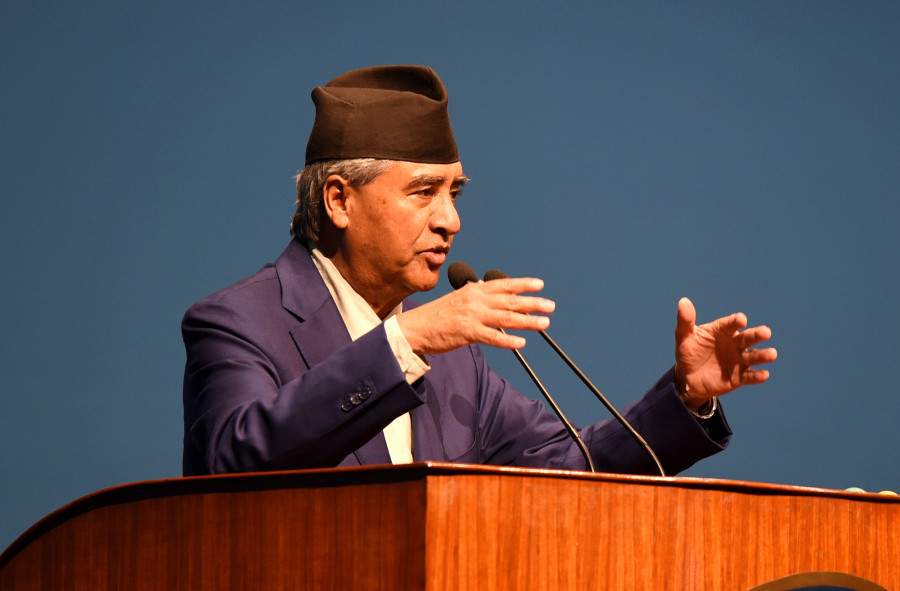Politics
Deuba’s statements on Kalapani ‘aggressive and ultra-nationalist’, party leaders say
Leaders from the Congress have criticised Deuba’s recent statement alleging that New Delhi published India’s new political map after consulting with KP Sharma Oli.
Anil Giri
Even as the uproar over India’s new political map appears to die down, two recent statements by Nepali Congress President Sher Bahadur Deuba on India’s inclusion of the Nepali territory of Kalapani within Indian borders have drawn criticism from inside his own party.
Leaders from Deuba’s own Nepali Congress have said that such “aggressive and ultra-nationalist” statements will not help resolve the boundary dispute with India and could be damaging for the party itself.
On November 23, while addressing a mass meeting in Kaski, Deuba said that New Delhi must have issued the new map after consultation with Prime Minister KP Sharma Oli. Three days later, while speaking with reporters at Biratnagar airport, Deuba reiterated the statement, going so far as to say that India is treating Nepal as it would Pakistan.
“Considering Kalapani and Susta are disputed lands, how come India issued a map placing those areas inside its territory? Is the role of KP Oli here not clear? India considers Nepal similar to Pakistan,” Deuba said.
After the Post reported on India’s new political map, which places the disputed territory of Kalapani, Lipu Lekh and Limpiyadhura within Indian borders, Oli held an all-party meeting on November 10 to solicit views from different political parties on how to deal with India.
But party leaders and analysts say that Deuba’s statement is unbecoming of a former prime minister.
“It appears to be a slip in his statement due to his style, which is very straightforward. But it will definitely not help us build and maintain good relations with India,” said Nepali Congress leader Narayan Khadka, who is also the shadow foreign minister. “We should put pressure on the government to resolve the dispute, not make statements against India.”
Ram Sharan Mahat, a senior Nepali Congress leader, also said that the party president should not have made such an unfounded statement on Kalapani.
“I do not know how our president made such a claim, but as far as I know, no country prints and publishes maps after consulting with other countries,” said Mahat. “If there is proof that Oli and India had consulted before publishing the map, Deuba should provide it. Otherwise, it will just harm us.”
Party leaders are afraid that Deuba’s statements could affect their chances at the by-elections. Deuba could be taking up an anti-India stance as a bargaining chip with New Delhi for the upcoming general convention of the party, said leaders. But such unfounded statements could lead to a negative result in the upcoming by-polls, said Congress leader Amresh Kumar Singh, who has often said that he is a “good friend of India”.
“My perception is that New Delhi is not happy with Deuba’s statement. It was immature and the party could lose its moral ground ahead of the by-polls,” said Singh.
According to Dinesh Bhattarai, a former diplomat who regularly advises Deuba on foreign policy matters, the ongoing boundary dispute should be handled through the right channels and not via aggressive posturing.
“We want good relations with India and when we talk about our foreign engagements, there is no alternative to India,” said Bhattarai. “We have to conduct our external relations with great sensitivity, especially when it comes to relations with our neighbours India and China.”
Bhattarai said that since all the political parties had backed the Oli administration in the November all-party meeting, the onus now lies on the government. “Instead of issuing statements, the Nepali Congress should now seek results from the government,” he said.




 13.12°C Kathmandu
13.12°C Kathmandu














